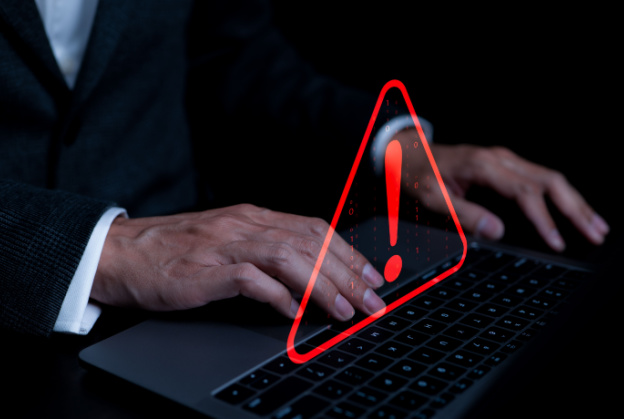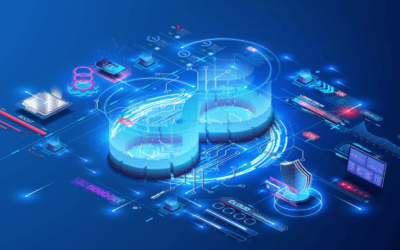Defining Alert Fatigue & its Impact on Cybersecurity
In the realm of cybersecurity, maintaining a high-level of vigilance is crucial to safeguarding sensitive information and protecting critical systems. However, a challenge known as alert fatigue undermines the effectiveness of security operations. Alert fatigue refers to the overwhelming and excessive volume of security alerts generated by various monitoring systems, leading to a decline in attentiveness and responsiveness among cybersecurity professionals. This phenomenon not only hampers the ability to identify and address genuine threats promptly but also increases the risk of critical security incidents going unnoticed. This blog will explore the concept of alert fatigue, its causes, and its profound impact on cybersecurity, emphasizing the need for proactive measures to mitigate this growing threat to organizational defenses.
The Challenges of Identifying and Prioritizing Alerts
As the volume of security alerts continues to soar, cybersecurity teams are confronted with a vast sea of information that requires careful analysis to differentiate between genuine threats and false positives. The sheer number of alerts can quickly overwhelm even the most experienced professionals, leading to alert fatigue and a subsequent decrease in attentiveness. According to a study by Promon, 2/3 of surveyed cybersecurity professionals claimed they experienced burnout in 2022. Furthermore, over 59% of surveyed cybersecurity professionals in an Orca Security study reported receiving 500+ cloud security alerts daily.
The dynamic nature of cyber threats also contributes to the challenge of alert identification and prioritization. Sophisticated adversaries continuously evolve their tactics, techniques, and procedures, making detecting and responding to their activities increasingly difficult. This necessitates continuous monitoring and analysis of alerts to stay one step ahead of the threat landscape. However, alerts’ sheer volume and complexity can divert valuable time and resources from investigating and responding to genuine threats, leaving organizations vulnerable to potential breaches.
Another significant challenge is accurately discerning each alert’s significance and potential impact. Each alert may provide valuable information about a potential security incident, but it can be challenging to gauge its severity accurately without proper context and correlation with other events. Security teams must carefully evaluate the potential consequences of each alert in terms of its potential impact on critical assets, systems, or sensitive data. This requires a deep understanding of the organization’s infrastructure and a comprehensive understanding of the threat landscape and the techniques employed by attackers.
Lastly, the diverse range of security tools and systems employed by organizations often generate alerts with varying levels of severity and relevance, further complicating the triaging process and prioritizing them.
Understanding the True Cost of Alert Fatigue
Alert fatigue can exact a significant cost on organizations, both in terms of financial implications and compromised security. When cybersecurity teams are overwhelmed by constant alerts, their ability to effectively identify and respond to genuine threats diminishes. This can result in delayed incident detection and response, increasing the organization’s vulnerability to cyber-attacks and potential breaches.
One prime example of how severe the consequences of alert fatigue can be, was in early 2014 when Target’s cybersecurity team received a seemingly average alert detailing malicious activity on the company’s corporate network. Looking similar to one of the hundreds of alerts received daily, their team ignored it and wrote it off as a false positive. Unfortunately, this threat was indeed concrete. Ultimately, this breach cost Target over $252 million, affecting nearly 70 million people, and leading to the company’s CIO and CEO resignation.
Minimizing Alert Fatigue with Automation
Automation has emerged as a powerful solution to mitigate alert fatigue for cybersecurity teams. Organizations can significantly reduce the manual burden associated with alert analysis and response by implementing automated processes and technologies. Automation streamlines the triaging and prioritization of alerts by leveraging machine learning algorithms and predefined rules. It enables the efficient handling of high-volume alerts, ensuring that each alert is appropriately categorized and assigned a severity level. With automation in place, routine and repetitive tasks, such as initial investigation and correlation of events, can be performed swiftly and accurately. This allows cybersecurity professionals to focus their expertise on analyzing more complex threats and responding to genuine incidents promptly. By relieving the team from the overwhelming manual effort, automation ultimately enhances their attentiveness, minimizes alert fatigue, and ensures that critical security incidents are not overlooked amidst the noise.
AgileBlue Automation
AgileBlue is an autonomous SOC | SOAR platform that’s proven to detect cyber threats faster and more accurately across your entire digital infrastructure and cloud. We provide 24/7 monitoring, detection, and response to identify cyber threats before a breach occurs. With AgileBlue’s automation, your team can respond to threats faster, avoid burnout, and focus more effectively on other aspects of your organization’s cybersecurity.
Ready to reduce your team’s alert fatigue and respond faster and more efficiently to threat alerts? Fill out the form below, and a team member will contact you shortly.




